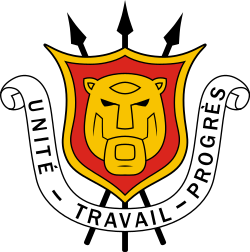 |
|---|
Kaze-Forces for the Defense of Democracy, also known by its abbreviated form KAZE-FDD, is a small, predominantly ethnic Hutu political party in Burundi. It is led by Jean-Bosco Ndayikengurukiye. The Kaze-FDD used to be a faction of the CNDD-FDD. [1]
 |
|---|
Kaze-Forces for the Defense of Democracy, also known by its abbreviated form KAZE-FDD, is a small, predominantly ethnic Hutu political party in Burundi. It is led by Jean-Bosco Ndayikengurukiye. The Kaze-FDD used to be a faction of the CNDD-FDD. [1]